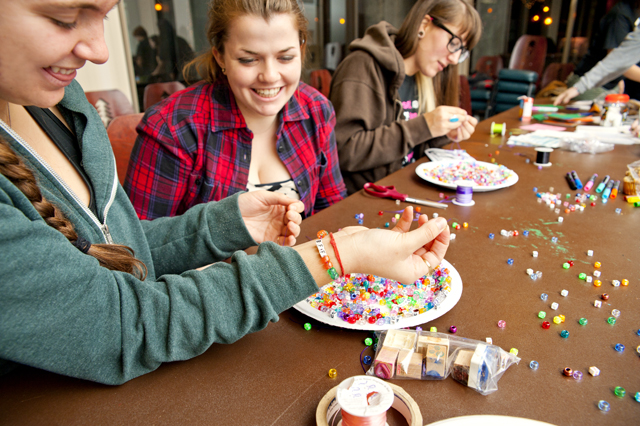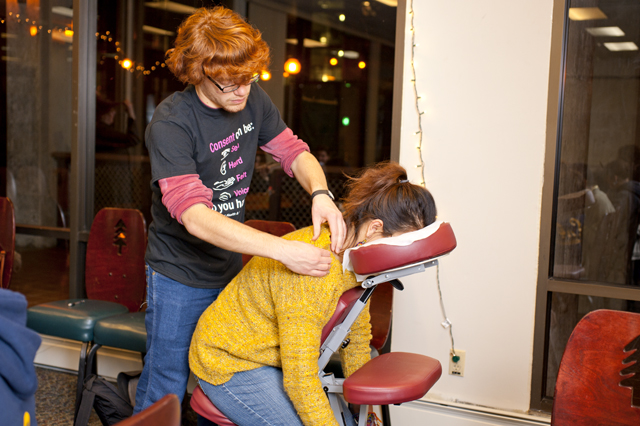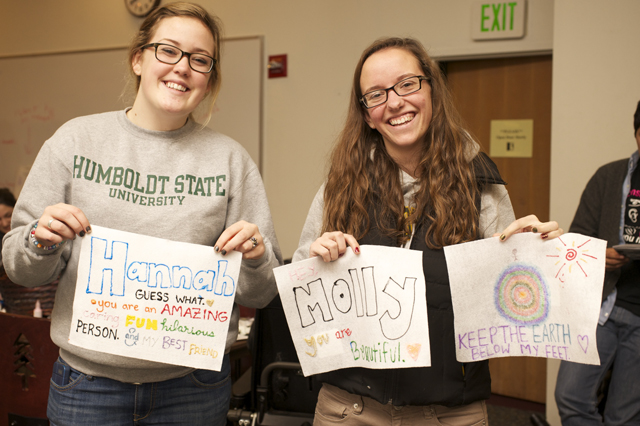
Started last year by the Student Health & Wellness Center, the program offers free nutrition, fitness, relationship, stress and substance abuse counseling to HSU students. “Our goal is to address health issues in a way that is engaging, non-judgmental and fun,” says Health Educator Mira Friedman, who launched the program last semester with graduate student Ravin Craig (’11, Politics and ‘14, Environment & Community).
The peer educator program is part of HSU’s Student Health & Wellness Center, which supports student health needs through a variety of services such as psychiatric counseling, x-rays, medical referrals and immunizations. Peer educators host several outreach activities a year including the annual Wellness Fair, the Consent Project on sexualized violence and Smoke Nothing Week. Last month, they organized a program to help students reduce their stress during finals week.

The de-stressing fair attracted about 50 students to the Klamath River room in Jolly Giant Commons, where there was a massage table and stations for creating puff paintings, origami and friendship bracelets. “We wanted to provide students with healthy, creative ways to let off some steam and recharge their batteries during finals week,” Friedman said.
Peer educators hosted another de-stressing event last semester called Puppy Therapy, in which students had the opportunity to spend a few minutes playing with puppies from a local animal shelter. “It’s been shown that animals can help relieve stress, and this event was no exception. There were students in tears, they were so happy,” Craig said.
In addition to hosting outreach events, peer educators address topics that broadly affect Humboldt State students. For example, a large number of HSU students become vegetarian or vegan during their first semester in college. “It can be a difficult conversation for a lot of students to have with their parents,” Craig says. “How do you respond when you go home for Thanksgiving and all of a sudden your parents ask you why they’re not eating the turkey?”
Many peer educators find the program a great way to gain valuable teaching and public speaking experience. Others benefit from the networking and career opportunities. Craig made peer health education the subject of her master’s thesis. She is exploring its roles as a tool for social justice and student retention. “I will be producing a guide on how to create and maintain a peer education program that is holistic and includes issues such as homophobia and mental health,” she said.

The peer educator program accepts volunteers year-round. Applications to become a paid peer health educator for Fall 2013 will be available on the Student Health & Wellness Center’s web site later this semester at humboldt.edu/health. Accepted students must complete CRGS 108 Power & Privilege within a year of joining the program. Participants receive 12 hours of paid training and national certification from the BACCHUS network, a collegiate peer education initiative that supports student health. For more information, email mira@humboldt.edu.